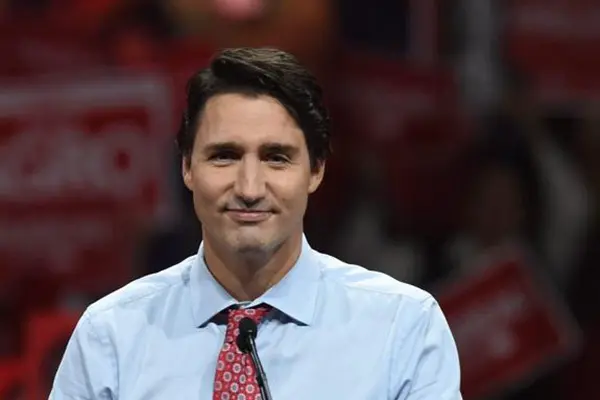Canadian Prime Minister Justin Trudeau suggested on Thursday that a C$30 billion ($21 billion) budget deficit was not a hard limit as the government's focus should be on spurring economic growth.
In a wide-ranging interview, Trudeau, 44, also said he wanted Britain to stay in the European Union and attributed his role a day earlier in an unusual physical fracas in Parliament partly to being in a high stress job.
On the budget deficit, Trudeau said he was not obsessed with a "perfect number" and instead vowed to increase economic growth.
"Yes, we need to be fiscally disciplined, we need to be responsible, but we need to be investing in the right kinds of things at the same time, so the arbitrary picking a number and trying to stick with it is exactly what I campaigned against in the last campaign," Trudeau said.
"It's not an obsession with the perfect number, it's an obsession with the perfect, or the right, path to grow the economy in ways that help in the short term but lead us on the path towards prosperity in the medium and long term."
Canadian economic growth is tepid and massive wildfires spreading across the energy heartland will cut federal tax revenues and cost Ottawa billions to cover much of the damages.
Trudeau campaigned on a proposed C$10 billion annual deficit but the ruling Liberals later said the economy needed a bigger jump start given the downturn. In March, the government unveiled a budget with a shortfall of just under C$30 billion.
"What Trudeau learned from ballooning out the deficit the first time was that voters don't care. Canadian voters are prioritizing growth and Trudeau plans to deliver that at any cost," said Adam Button, currency analyst at ForexLive in Montreal.
"Like voters, the market is much more concerned with growth at this point. Central bankers have failed to deliver growth and markets are willing to tolerate larger government deficits for a chance to return to the old normal."
Speaking in his corner office on Parliament Hill, where a sheathed Sikh sword sits on the desk, Trudeau said he did not see a point at which the government would walk away from talks with Bombardier Inc because aerospace jobs were exactly the kind of future Canada wants.
Ottawa is under pressure to provide aid to the plane maker, which is based in the mostly French-speaking province of Quebec, Trudeau's home, but federal negotiators want concessions around control of the company.
No Aboriginal Veto On Pipelines
The prime minister also said that while community consultation was vital, Aboriginal groups did not have a veto over pipeline development.
Building new oil pipelines in Canada has proven difficult in recent years amid fierce legal and social opposition, frustrating producers who want greater market access.
Trudeau said there would be no unanimous agreement over the future of pipelines needed to carry oil from landlocked Alberta, but the government's long approval processes ensured any decisions would balance concerns from both the environment and the energy sector.
He also expressed hope Britons would vote on June 23 to stay in the European Union, noting there would be "nothing easy or automatic" about Britain negotiating a bilateral trade deal with Canada.
Trudeau, under fire for initiating the confrontation in Parliament on Wednesday - a rare public loss of control that dented his image - characterized his actions as "a poor judgment call."
He declined to comment on whether Canada or the world would struggle if Republican presidential candidate Donald Trump were to win the White House in November.
"I know that the relationship between Canada and the U.S., specifically, but (also) between the U.S. and the rest of the G7 countries is greater than the personality of any one leader and I look forward to working with whomever the Americans elect this fall," Trudeau said, adding that he has never spoken to Trump.
(REUTERS)
 简体中文
简体中文

